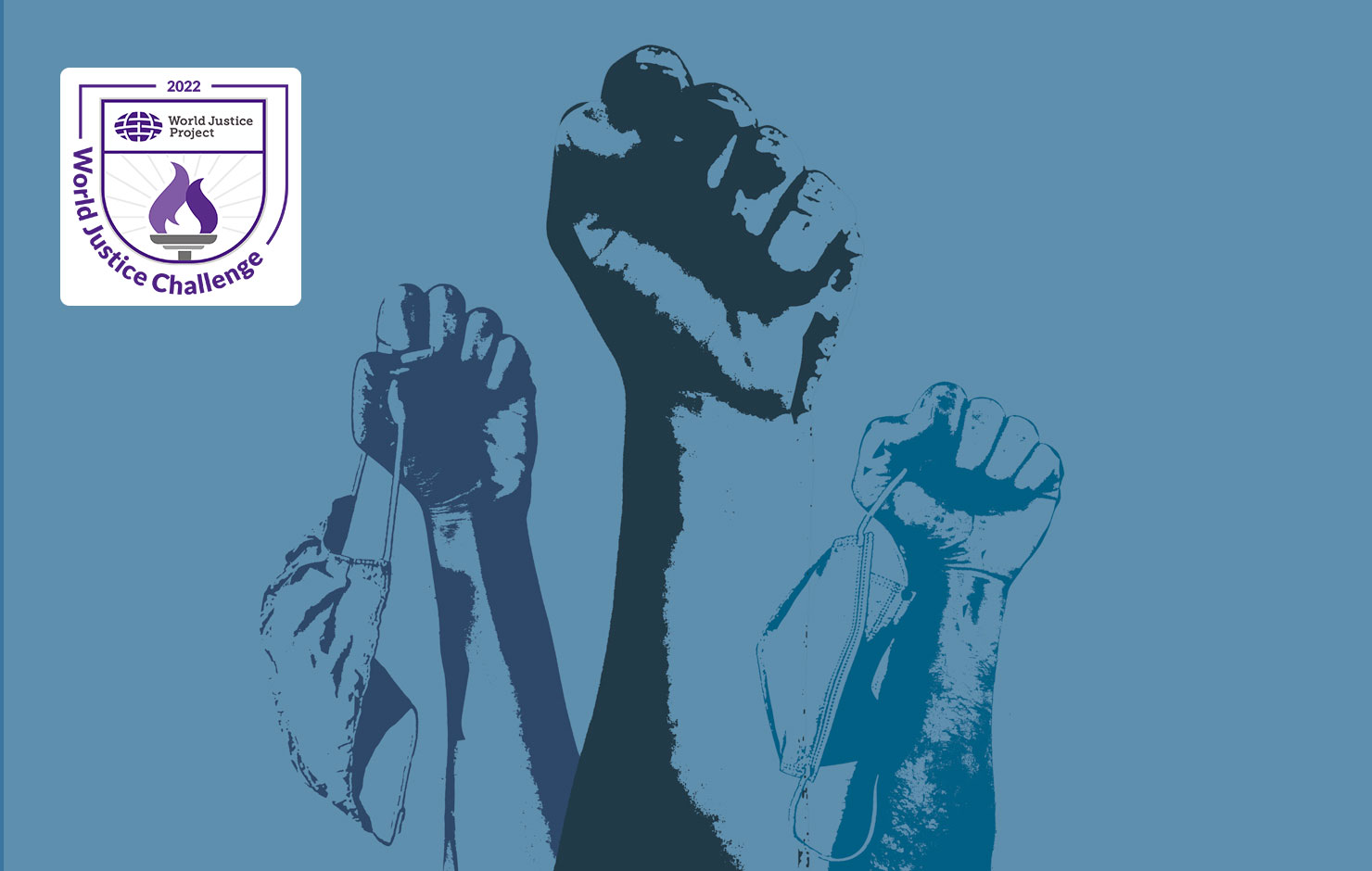
Problem Statement
The World Justice Challenge 2022: Building More Just Communities seeks to identify, recognize, and promote good equal rights and non-discrimination practices and high-impact projects and policies that help ensure the path of recovery from COVID-19 is just and that progress toward achieving the SDGs gets back on track.
The COVID-19 pandemic has weakened human rights protections and worsened structural discrimination globally. According to the World Justice Project Rule of Law Index®, over the past year 70 percent of countries declined in their fundamental rights score, which measures factors such as equal treatment and absence of discrimination, freedom of religion and belief, right to privacy, and guarantees on freedom of assembly, association, opinon, and expression. This is part of a distressing multi-year trend, in which more countries have regressed on this indicator than any other rule of law factor over the last six years.
The pandemic has especially exacerbated the systemic marginalization of minority groups and vulnerable populations. In many places, government responses to the pandemic have entailed inequitable social protection and service delivery, repressive emergency measures, and other discriminatory policies that directly threaten the lives, livelihoods, and dignity of marginalized communities. These restrictive practices are often implemented with minimal oversight and in a manner that infringes on fundamental human rights. Indigenous peoples, migrants, and ethnic and religious minorities have been especially affected by blanket bans on freedom of assembly and movement, which in some cases serve as a pretext for discriminatory government agendas.
Meanwhile, COVID-19 has taken a disproportionate toll on women and girls. Lockdowns early in the pandemic led to higher rates of domestic violence and barriers to reproductive health services, while school closures removed girls from educational opportunities and increased their likelihood for child marriage. The pandemic’s consequences have also been detrimental for economic equality, as women experienced a five percent global job loss last year, compared with only a 3.9 percent loss for men.
The road to pandemic recovery will require intersectional, people-centered approaches to re-establish and strengthen equal rights and non-discrimination protections. Dismantling these systemic inequities, which COVID-19 both exposed and amplified, must be central in order for the “build back better” agenda to succeed.
Guidelines for Applicants
The World Justice Challenge encourages entries that address systemic barriers to equal rights and non-discrimination, including, but not limited to:
- Addressing systemic discrimination and unequal treatment of women and girls, racial, ethnic and religious minorities, LGBTI+ communities, people with disabilities, migrants, indigenous communities, and other marginalized groups
- Ensuring women and girls, racial, ethnic and religious minorities, LGBTI+ communities, people with disabilities, migrants, indigenous communities, and other marginalized groups are included in both short- and long-term economic and social recovery plans
- Addressing gender-based violence
- Tackling the discriminatory impacts of climate and other environmental problems
- Protecting journalists and other media workers, especially those from historically disadvantaged communities
- Protecting human rights defenders and the lawyers who represent them, especially from historically disadvantaged communities
- Protecting the right to peaceful assembly and/or association free of discrimination and unwarranted interference
- Protecting the right to privacy in accordance with norms of legality, necessity, proportionality, and non-discrimination
- Ensuring digital technology is created and deployed in ways that reduce or eliminate inherent biases and discrimination
- Challenging discriminatory practices and policies relating to arrest, detention, prosecution, probation, or exile
- Strengthening the implementation and/or enforcement of hate crimes legislation